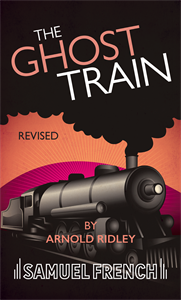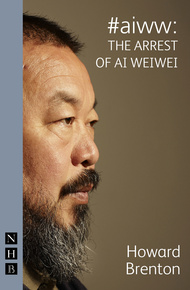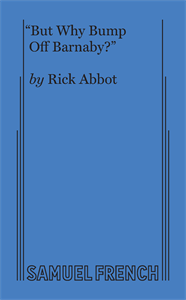
Ghost Train (Revised), The
- Full Length Play, Drama, Mystery/Thriller, 1930s
- 5M, 4F
- ISBN: 9780573000041
Six passengers find themselves stranded late at night in the waiting-room of an isolated Cornish railway station. Ignoring the ghostly tales and dire warnings of the stationmaster, they decide to stay where they are until morning – with terrifying consequences.
Description
- Full Length Play
- Drama, Mystery/Thriller
- Time Period: 1930s
- Target Audience: Appropriate for all audiences
- Performance Group:
- High School/Secondary, College Theatre / Student, Community Theatre, Professional Theatre
A NOTE ON THE ADAPTATION:
The Ghost Train is a comedy-thriller and not a farce. It needs to be played with sincerity and – at certain points – with a degree of seriousness. This is the way that the true comedy of the piece can best be enjoyed, and the rather touching drama that runs through parts of the play can be shown in the most affecting light. As importantly, it’s only when the characters (and actors) on stage believe in the perils they are facing that the true horror of the night’s events can be seen and believed by the audience.
It’s not been our wish in any way to ‘update’ the dialogue, but there are expressions and modes of speech in the original that, being unfamiliar, can appear puzzling or unintentionally comic. These can distract the audience, disconcert the actor and disrupt the flow of the play. Wherever we have felt it helpful to make substitutions, we have tried to be true to the language of the period and to retain the rhythm of the original dialogue.
An issue we have tried to address is the relationship between the sexes. The attitudes of men and women in the 1920s were very different from those of today. This doesn’t, of course, justify any attempt to disguise or reform such attitudes but the language in which they’re expressed may jar. We have therefore re-phrased certain exchanges to make them more readily acceptable to a modern audience.
Would Arnold Ridley approve of the changes we’ve made? We’re confident he would. He was, above all, a man of the theatre. A play for him was what occurred on the stage and much more than what was written on the page. His maxim was always if it works do it. Copies of The Ghost Train in his archive show evidence of any number of tweaks and re-writes made to suit the requirements of a particular production.
We hope that our adaptation will bring new life to a play that’s given so much enjoyment to so many people for so long.
Characters
- Casting: 5M, 4F
RICHARD WINTHROP
ELSIE WINTHROP – his wife
CHARLES MURDOCK – junior partner in Murdoch & Son
PEGGY MURDOCK – his newly-married wife
MISS BOURNE
TEDDIE DEAKIN
JULIA PRICE
JOHN STERLING JACKSON – a policeman
Available Material
| Name | Price |
|---|---|
|
Ghost Train (Revised), The Script
This is optional.
Order Now
Arnold Ridley’s classic comedy-thriller, The Ghost Train, was first produced in 1925 and has been a firm favourite with professional and non-professional theatre companies ever since. Six passengers find themselves stranded late at night in the waiting-room of an isolated Cornish railway station. Ignoring the ghostly tales and dire warnings of the stationmaster, they decide to stay where they are until morning – with terrifying consequences. Finally, all is revealed and the details of a fiendish plot are laid bare. |
$24.95 |




